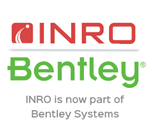The potential of government subsidised, CAVs-provided MAAS
Alex Iljin
Consultant, Victoria
This presentation was delivered at the 2021 Online Conference Series and until October 2022 is only available to registered delegates and Content Access Pass holders via Interchange. For information on accessing this and other presentations please review the Content Access Pass options.
ABSTRACT
Australian governments spend around $27 billion (bn) a year to provide public transport, community transport, etc.
Farebox recovery is around $9 billion, or one-third, so the next expenditure on transport services is around $18 bn.
There are currently around 15 bn urban person trips made in Australia each year (with say around 15% are on public transport).
CAVs are forecast to reduce the cost of car travel to around 35% to 50% of the current per km cost (which has remained almost unchanged for nearly a century) (noting that this transformation may take another two decades to achieve, depending on how quickly CAVs and MaaS are brought to market by the private sector, which has already invested around $16 bn in CAVs research and development).
This suggests that the government is currently spending enough on transport services to "purchase" up to 40% of trips from CAVs MaaS providers (eg Uber, Waymo, iCar, Zoox, etc), depending on how much of the farebox is forgiven (ie the government's "trips" could be a under a sliding co-payment arrangement rather than a universal full subsidy).
This could give governments significant opportunity to provide equitable travel in Australia's major cities, if the appropriate policy and supporting regulatory framework is developed over the next decade (so that when CAVs MaaS arrives, it has to fit into pre-existing rules, rather than playing catch-up as governments are currently doing with social media on issues such as privacy, fee for content, etc).
Author
Alex Iljin | Consultant
Alex Iljin helps governments and private sector operators/investors to plan and deliver major transport infrastructure projects and services, drawing on more than three decades of experience in transport planning, traffic engineering and project management.
Alex also applies his expertise to imagining what the urban and transport future might look like and how to best prepare for it.







